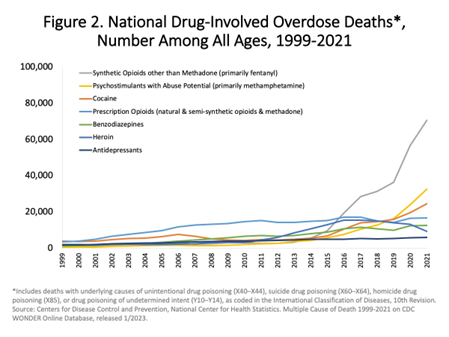The use of opioid drugs and synthetic opioids has become an issue for many individuals. Usually prescribed for pain, they have become commonplace in healthcare and recreational medications. This is unfortunate as some individuals have difficulty stopping the medication, while others seek these drugs for use outside of healthcare issues. The use of opioid medication is a crisis in our country.
Opioids are named because the drugs provide similar responses in the body as opium. The drugs include codeine, fentanyl, heroin, hydrocodone, morphine, oxycodone, and others. They work by affecting pain signals in the brain and increasing a pleasant feeling in the body. These drugs do not treat the pain source but block the perception of it.
Often prescribed to individuals with neurological concerns, these medications are not effective in treating neuropathic pain, although you may not perceive the pain as much. An individual can develop a tolerance for opioids, creating a need for more drugs, an addiction to the drug, and opioid disorder, which is dependent use despite negative consequences to the body and mind. Death can occur with prolonged use or even a one-time use overdose. As you can see in the figure below, death rates are dramatically on the rise.
You can avoid complications, addiction, and death from opioid use by being aware and cautious about your health.
Get treatment for your issues. There are medications that are specifically designed to treat neuropathic pain. This is pain that results from injury to the nerves or within the nervous system. Nerve pain can be treated with pregabalin (Lyrica) or gabapentin (Neurontin), low-dose antidepressants, or low-dose antiepileptic medication. You may need to up your dosage as your body becomes accustomed to the medication, but you will feel better because your pain will be reduced.
Obtain your medications from authorized vendors. Medications are expensive. However, stick with authorized vendors such as pharmacies to ensure you are getting the medication that is prescribed, not a fake or different medication. Do not borrow medication from a friend or purchase it on the internet. These drugs may not be right for you. The dosing of medication must be consistent with maintaining your health. Quality of manufacturing ensures no other products have been added. Your safety needs to come first.
Weaning. If you do take opioids or nerve pain medications, be sure to discuss with your healthcare professional how you, as an individual, should stop and start a different medication. Stopping an opioid must be done with a tapering schedule. Stopping suddenly leads to painful and unnecessary withdrawal symptoms but, even more importantly, makes other treatments for your pain more complicated and less effective. A tapered withdrawal allows your body to process the withdrawal slowly, leading to fewer withdrawal effects.
Addiction assistance. If you do have an opioid addiction, do not be embarrassed or ashamed. You may have been following prescription orders or looking for a treatment that was not previously available. However, recognize the issue and move forward with treatment. There are medications that will assist your body and mind in your recovery, such as those listed in the graphic below.

 Children should be alerted to offers of ‘candy’ or drugs from friends or even adults. Many addictive drugs offered to children look like candy. Keep your child safe by making them aware of not taking candy from unknown individuals or ‘sneaking’ candy.
Children should be alerted to offers of ‘candy’ or drugs from friends or even adults. Many addictive drugs offered to children look like candy. Keep your child safe by making them aware of not taking candy from unknown individuals or ‘sneaking’ candy.